Please apply via indeed.com (https://www.indeed.com/viewjob?t=marketing+development+director&jk=69d203a096dfe51d&_ga=1.191544111.46375697.1493654150) or bring your resume by 1230 Midwestern Parkway. No phone calls please.
Job Description
POSITION: Marketing and Development Director
REPORTS TO: CEO
SALARY RANGE: Based on Experience
DATE: Revised June 29, 2015
Responsibilities
Development
• Supervise and evaluate development staff.
• Conduct targeted research on the availability of private and government funds.
• Prepare foundation, corporate and government grant proposals.
• Ensure staff consistently prepares gift acknowledgements for all donations.
• Identify prospects for cultivation, solicitation, and stewardship of upper level annual gifts.
• Review the giving history of prospects and suspects in order to recommend appropriate solicitation levels.
• Oversee donor communications, including collateral print and marketing materials used in the cultivation and solicitation of individual corporate donors.
• Prepare and submit timely interim reports, final reports and other necessary requirements to funders.
• Proactively identify new or previously untapped potential funding sources.
• Collaborate closely with the program staff to develop proposal goals and with finance for budget preparation.
• Use proposal technology tools and platforms.
• Supervise all grant writing, research, and reporting.
• Work with Direct Mail Company in design and coordination of individual giving campaigns including direct mail, personal e-mail solicitation, special events, and other strategies
• Supervise design production and distribution of all development materials including brochures, letters, inserts and invitations.
• Maintain grant records.
• Prepare monthly grant reports.
• Represent the Food Bank and its programs in meetings, site visits, and phone conversations with foundation, corporate and government representatives
• Perform market research and analysis.
• Work to develop marketing campaigns for new products and services.
Social Media and Design
• Design clear engaging graphic communications for print and web. This will include logos, direct mail pieces, branded promotional items, web site and social media graphics, posters, flyers, and other marketing materials as needed.
• Prepare layouts for print materials, including flyers, posters, brochures, etc.
• Generate creative ideas
• Assist with assorted Public Relations and Marketing duties
• Ensure brand consistency
• Be aware of industry trends
• Via design skills, communicate the story of the Food Bank
• Design and implement quarterly newsletter
• Create video clips and website graphics/slides
• Update/produce website pages, as needed
• Design the newsletter and facilitate the delivery of the newsletter
• Manage Social Media marketing campaigns and day-to-day activities including:
o Curate relevant content to reach the company’s ideal customers.
o Create, curate, and manage all published content (images, video and written).
o Develop and expand community and/or blogger outreach efforts.
o Oversee design (ie: Facebook Timeline cover, profile pic, thumbnails, ads, landing pages, Twitter profile, and blog).
o Design, create and manage promotions and Social ad campaigns.
• Provide strategic guidance recommendations for all of the company’s digital media plans.
• Represent the company in Social Media spaces, engaging in dialogues and answering questions when necessary and as a neutral party.
• Ability to jump from the creative side of marketing to analytical side, able to demonstrate why the ideas are analytically sound.
• Produce engaging, fresh and original content that encourages customers to interact with the company website and social media sites.
• Create and develop more compelling and original content to enhance the company’s online presence.
• Develop consumer relevant content that highlights food bank information, education, promotions, events and partnerships.
• Accurately write, proofread, and edit copy for email, site, and social network placement.
• Regularly track the online non-profit landscape for content and campaign ideas that will drive traffic to the website.
• Review and evaluate web analytics reports to trend and forecast website consumer behavior.
• Uphold established site and email style guides without exception.
• Provide social media and blog content recommendations based on food bank education, advocacy and hunger information.
Qualifications
• Excellent communication skills (written and verbal) and demonstrated ability to be an effective spokesperson
• A respectful and collaborative approach to fostering partnerships with diverse stakeholders, both internal and external.
• Be proficient in Adobe InDesign, Illustrator, & Photoshop and/or other common design and layout applications
• Strong attention to detail with a positive, problem-solving approach to work.
• Proven ability to function effectively in a fast-paced environment with competing priorities and deadlines.
• Between three and five years previous experience in foundation fundraising, corporate fundraising, grant writing, prospect research, and/or related areas
• Strong management skills including facilitation and process improvement
• Self-starter; able to work independently; team player; flexible
• Proficient in content marketing theory and application. Experience sourcing and managing content development and publishing.
• Possesses knowledge and experience in the tenets of traditional marketing. Marketing degree is encouraged but not required with relevant work experience.
• In depth knowledge and understanding of Social Media platforms, their respective participants (Facebook, Twitter, Instagram, YouTube, Google +, Pinterest, etc…) and how each platform can be deployed in different scenarios.
• Strong understanding of photography and typography is desired.
• Ability to design for the web is also desired. Creative, deadline-oriented and able to work effectively in a collaborative environment.
• Understand web design.
• Understand video production processes.
• Understand web interface and user experience design.
• Create video clips and website graphics/slides and produce files for the web.
Core Competencies
• Ethical
• Active listener
• Persuasive communication skills
• Visionary, passionate and Inspirational
• Trustworthy
• Sound judgment
• Excellent follow up
• Self directed
• Strategic and flexible
• Results oriented
• Service focused
• Collaborative and Diplomatic
Key Responsibility Areas:
1. Implement and Improve development and marketing department year over year.
2. To work implementing the long term fund raising plan in connection with Clarkson Davis, Board Members, CEO and Development Manager.
3. To provide the public with valid and useful information to support the mission of the organization.
Working Conditions:
Work is performed in a variety of office and community settings inside and outside the WFAFB. Employee will use computer and phones daily. Lifting, at times, is required, but only on a minimal basis. Occasional work outside of normal working hours, such as evenings and weekends depending on events.
A major challenge of this position, as with all positions, is working in cooperation with the Board of Directors, staff, member agency representatives, volunteers and the general public in an effort to achieve the WFAFB’s mission. This requires frequent communication with staff and occasionally performing tasks that are not specifically indicated in the job description. Evaluation will in part be based upon performance of the tasks listed in this job description. WFAFB has the right to revise this job description at any time. The job description is not a contract for employment.
Wichita Falls Area Food Bank provides equal employment opportunities (EEO) to all employees and applicants for employment without regard to race, color, religion, sex, national origin, age, disability or genetics. In addition to federal law requirements, the Wichita Falls Area Food Bank complies with applicable state and local laws governing nondiscrimination in employment in every location in which the company has facilities. This policy applies to all terms and conditions of employment, including recruiting, hiring, placement, promotion, termination, layoff, recall, transfer, leaves of absence, compensation and training.
The Wichita Falls Area Food Bank expressly prohibits any form of workplace harassment based on race, color, religion, gender, sexual orientation, gender identity or expression, national origin, age, genetic information, disability, or veteran status. Improper interference with the ability of the Wichita Falls Area Food Bank’s employees to perform their job duties may result in discipline up to and including discharge.
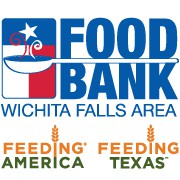
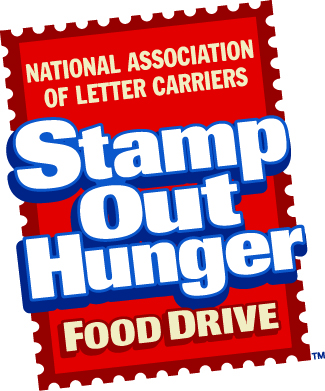 WASHINGTON – The National Association of Letter Carriers (NALC) will conduct its 25th annual national food drive on Saturday, May 13. The Stamp Out Hunger® Food Drive, the country’s largest single-day food drive, provides residents with an easy way to donate food to those in need in the community.
WASHINGTON – The National Association of Letter Carriers (NALC) will conduct its 25th annual national food drive on Saturday, May 13. The Stamp Out Hunger® Food Drive, the country’s largest single-day food drive, provides residents with an easy way to donate food to those in need in the community.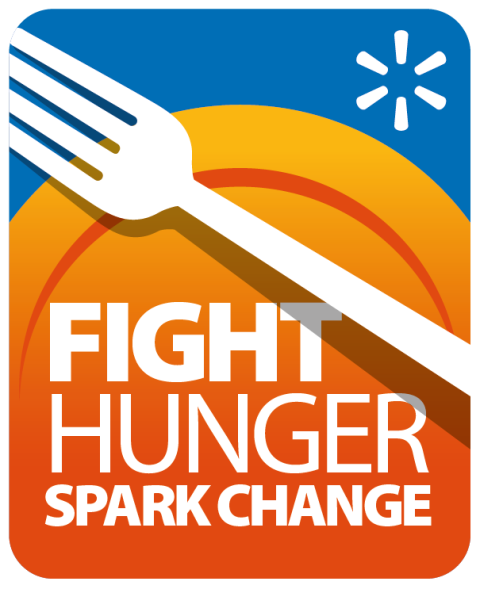
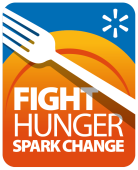 Through online acts of support, purchases of participating products and donations at the register, the Fight Hunger. Spark Change. campaign aims to help Feeding America secure 100 million meals on behalf of member food banks
Through online acts of support, purchases of participating products and donations at the register, the Fight Hunger. Spark Change. campaign aims to help Feeding America secure 100 million meals on behalf of member food banks 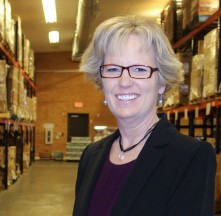 s troubling to me.
s troubling to me.
 family spent the last week living on the average food stamp (aka SNAP) budget, $4.20 per person per day. For us, that total bu
family spent the last week living on the average food stamp (aka SNAP) budget, $4.20 per person per day. For us, that total bu
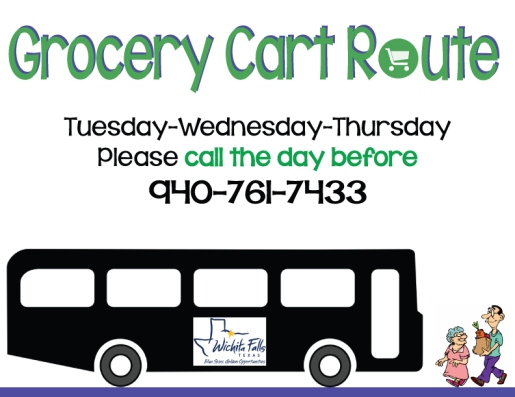

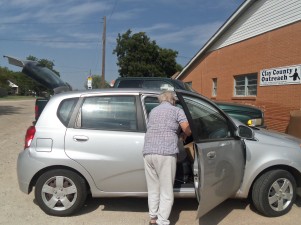 The food pantry volunteers appreciate her because she takes food that would not be edible by the next week when the pantry opens again. Her diligence decreases food waste.
The food pantry volunteers appreciate her because she takes food that would not be edible by the next week when the pantry opens again. Her diligence decreases food waste.